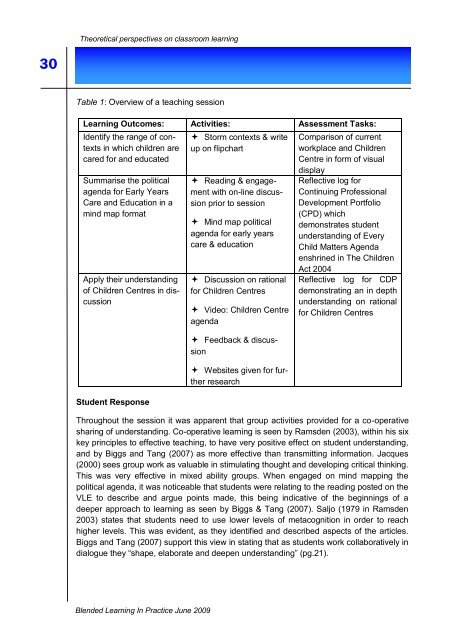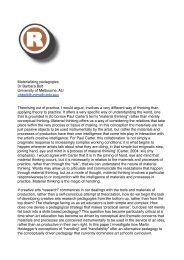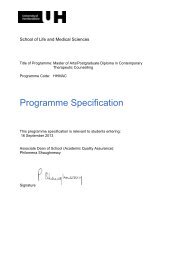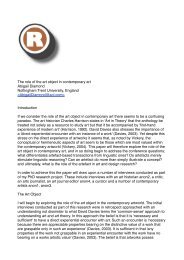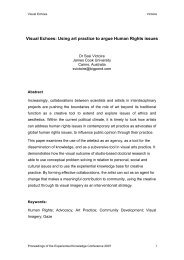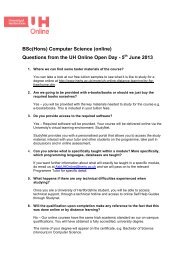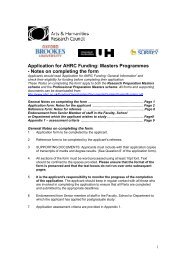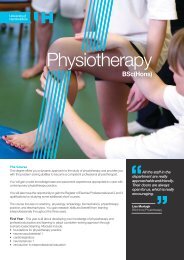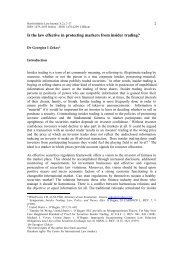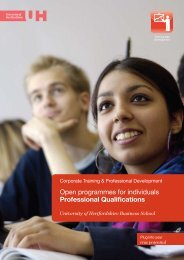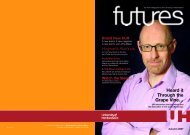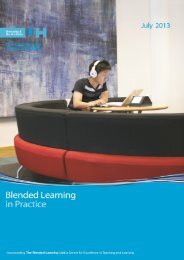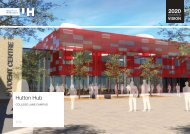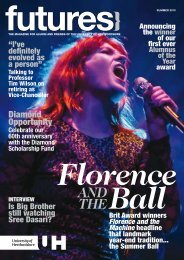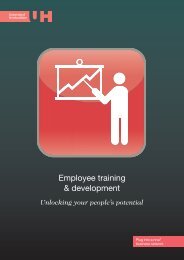June 2009 - University of Hertfordshire
June 2009 - University of Hertfordshire
June 2009 - University of Hertfordshire
Create successful ePaper yourself
Turn your PDF publications into a flip-book with our unique Google optimized e-Paper software.
Theoretical perspectives on classroom learning<br />
30<br />
Table 1: Overview <strong>of</strong> a teaching session<br />
Learning Outcomes: Activities: Assessment Tasks:<br />
Identify the range <strong>of</strong> contexts<br />
in which children are<br />
cared for and educated<br />
Summarise the political<br />
agenda for Early Years<br />
Care and Education in a<br />
mind map format<br />
Apply their understanding<br />
<strong>of</strong> Children Centres in discussion<br />
Student Response<br />
Storm contexts & write<br />
up on flipchart<br />
Reading & engagement<br />
with on-line discussion<br />
prior to session<br />
Mind map political<br />
agenda for early years<br />
care & education<br />
Discussion on rational<br />
for Children Centres<br />
Video: Children Centre<br />
agenda<br />
Feedback & discussion<br />
Websites given for further<br />
research<br />
Comparison <strong>of</strong> current<br />
workplace and Children<br />
Centre in form <strong>of</strong> visual<br />
display<br />
Reflective log for<br />
Continuing Pr<strong>of</strong>essional<br />
Development Portfolio<br />
(CPD) which<br />
demonstrates student<br />
understanding <strong>of</strong> Every<br />
Child Matters Agenda<br />
enshrined in The Children<br />
Act 2004<br />
Reflective log for CDP<br />
demonstrating an in depth<br />
understanding on rational<br />
for Children Centres<br />
Throughout the session it was apparent that group activities provided for a co-operative<br />
sharing <strong>of</strong> understanding. Co-operative learning is seen by Ramsden (2003), within his six<br />
key principles to effective teaching, to have very positive effect on student understanding,<br />
and by Biggs and Tang (2007) as more effective than transmitting information. Jacques<br />
(2000) sees group work as valuable in stimulating thought and developing critical thinking.<br />
This was very effective in mixed ability groups. When engaged on mind mapping the<br />
political agenda, it was noticeable that students were relating to the reading posted on the<br />
VLE to describe and argue points made, this being indicative <strong>of</strong> the beginnings <strong>of</strong> a<br />
deeper approach to learning as seen by Biggs & Tang (2007). Saljo (1979 in Ramsden<br />
2003) states that students need to use lower levels <strong>of</strong> metacognition in order to reach<br />
higher levels. This was evident, as they identified and described aspects <strong>of</strong> the articles.<br />
Biggs and Tang (2007) support this view in stating that as students work collaboratively in<br />
dialogue they “shape, elaborate and deepen understanding” (pg.21).<br />
Blended Learning In Practice <strong>June</strong> <strong>2009</strong>


